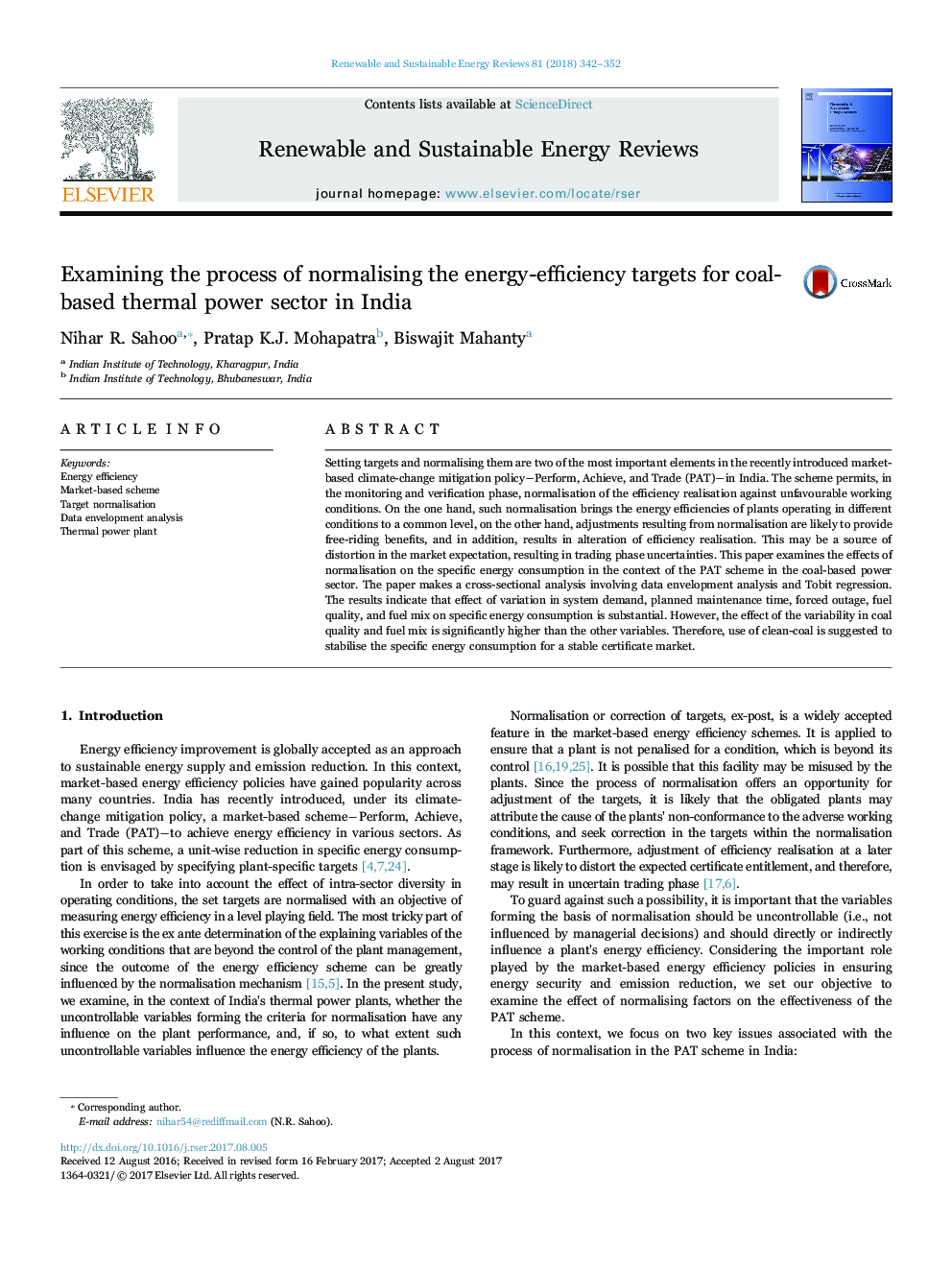| Article ID | Journal | Published Year | Pages | File Type |
|---|---|---|---|---|
| 5481964 | Renewable and Sustainable Energy Reviews | 2018 | 11 Pages |
Abstract
Setting targets and normalising them are two of the most important elements in the recently introduced market-based climate-change mitigation policyâPerform, Achieve, and Trade (PAT)âin India. The scheme permits, in the monitoring and verification phase, normalisation of the efficiency realisation against unfavourable working conditions. On the one hand, such normalisation brings the energy efficiencies of plants operating in different conditions to a common level, on the other hand, adjustments resulting from normalisation are likely to provide free-riding benefits, and in addition, results in alteration of efficiency realisation. This may be a source of distortion in the market expectation, resulting in trading phase uncertainties. This paper examines the effects of normalisation on the specific energy consumption in the context of the PAT scheme in the coal-based power sector. The paper makes a cross-sectional analysis involving data envelopment analysis and Tobit regression. The results indicate that effect of variation in system demand, planned maintenance time, forced outage, fuel quality, and fuel mix on specific energy consumption is substantial. However, the effect of the variability in coal quality and fuel mix is significantly higher than the other variables. Therefore, use of clean-coal is suggested to stabilise the specific energy consumption for a stable certificate market.
Related Topics
Physical Sciences and Engineering
Energy
Renewable Energy, Sustainability and the Environment
Authors
Nihar R. Sahoo, Pratap K.J. Mohapatra, Biswajit Mahanty,
